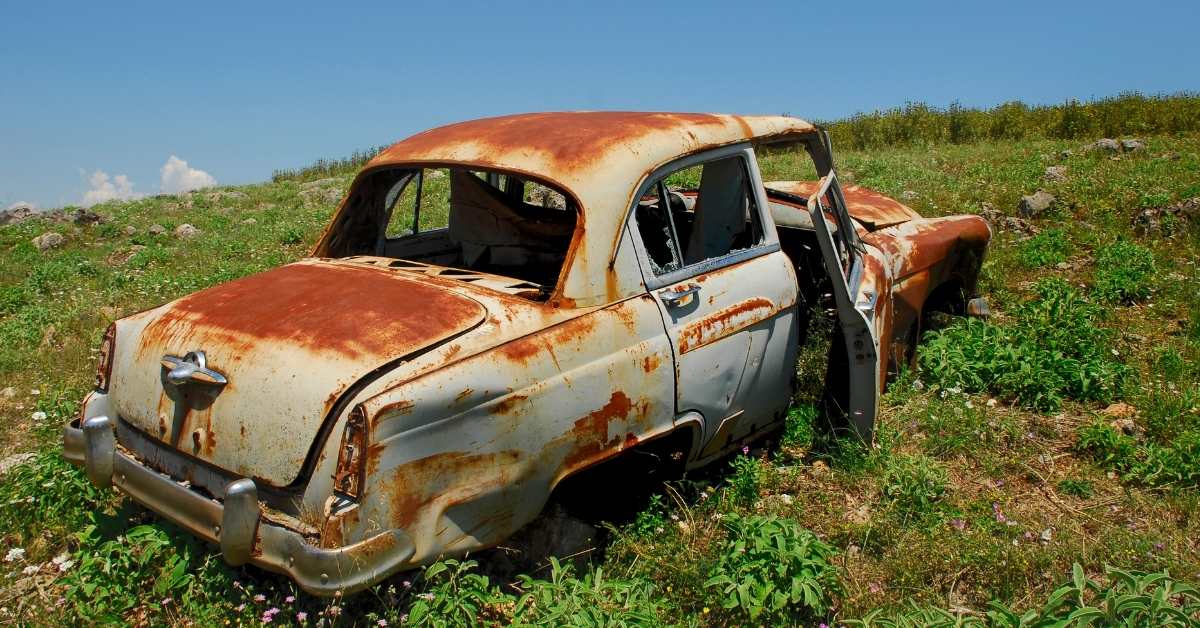No, car covers do not cause rust. Rust is caused by exposure to moisture and oxygen. Car covers protect your vehicle from these elements and help prevent rust.
If you’re like most car owners, you want to do everything you can to keep your car looking new. You washes and waxes it regularly, and you make sure to park it in the garage whenever possible. But have you ever thought about using a car cover?
Car covers are designed to protect your vehicle from the elements, but some people worry that they might actually cause rust. So, what’s the truth? Do car covers cause rust?
The short answer is no, car covers do not cause rust. In fact, they can actually help prevent rust by keeping your car clean and dry. Rust is caused by exposure to moisture and oxygen, so a cover that keeps out water and dirt can actually help prevent rust formation.
Of course, there are other factors that can contribute to rust formation, such as road salt or living near the ocean. But if you use a good quality car cover and take care of it properly, it will definitely help protect your vehicle from rust.
The Truth About Car Covers
Will a Car Cover Make Rust?
It’s a common misconception that car covers will prevent rust, but they actually don’t do much in the way of protection. Rust is caused by moisture and oxygen coming into contact with metal, so a car cover won’t do much to keep rust at bay.
Do Waterproof Car Covers Cause Rust?
Waterproof car covers are often made with a vinyl or plastic material that can cause rust on your car. The moisture from the cover can seep into small cracks and crevices on the surface of your car, causing the metal to oxidize and eventually rust. If you live in an area with high humidity or frequent rainfall, it’s important to be extra vigilant about checking for signs of rust on your car.
If you do find rust, make sure to remove it as soon as possible to prevent further damage.
Do Car Covers Ruin Cars?
No, car covers do not ruin cars. In fact, they can actually protect your car from the elements and keep it looking new for longer. UV rays from the sun can cause fading and aging of your car’s paint job, but a good quality car cover will block out those harmful rays.
Car covers also help to protect your car from dirt, dust, and bird droppings – all of which can damage your paint job over time.
What are the Pros And Cons of a Car Cover?
There are a few pros and cons to having a car cover. A car cover can help protect your vehicle from the elements and keep it looking new. It can also be a pain to put on and take off, and it can be expensive.
The biggest pro of having a car cover is that it will protect your vehicle from the sun, rain, snow, and wind. This can help keep your paint job looking fresh and prevent rusting or other damage to your car. It’s also great for keeping your interior clean and free of debris.
The downside to car covers is that they can be a hassle to put on and take off, especially if you don’t have a garage or other sheltered area to store them in. They can also be pricey – but if you plan on keeping your car for a long time, they may be worth the investment.

Credit: www.calcarcover.com
How to Protect Your Car from Snow Without a Garage
Anywhere that sees snowfall in the winter also sees an uptick in car accidents. Snow and ice can make even short trips hazardous, and parking your car outside overnight leaves it vulnerable to damage from falling snow and ice—not to mention the potential for theft. So how can you protect your car from snow and ice without a garage?
Here are a few tips:
1. Get a good set of all-weather floor mats. These will help protect your carpets from salt, mud, and water brought in on your shoes and boots.
2. Get a set of winter tires. All-season tires are fine for most driving conditions, but they don’t offer the same level of traction in snow and ice as winter tires do. If you live in an area with frequent snowfall, it’s worth the investment to get a set of winter tires for your car.
You’ll be glad you did when you find yourself driving in slippery conditions!
3. Keep some sand or kitty litter in your trunk. This can help if you get stuck in the snow and need some extra traction to get going again.
4. Invest in a good windshield scraper and brush combo tool. This will make it much easier to remove snow and ice from your windshield before you start driving—and it’s one less thing you have to remember to bring inside with you when you park at night!
Conclusion
Car covers are often used to protect vehicles from the elements, but some people worry that they can cause rust. Rust is a type of corrosion that occurs when iron or steel is exposed to oxygen and water. While it’s true that car covers can trap moisture against your car’s body, leading to rust, this is only likely to happen if the cover is not breathable or if it doesn’t fit properly.
If you use a breathable car cover and make sure it doesn’t rub against your paint, you should be able to avoid rust formation.
